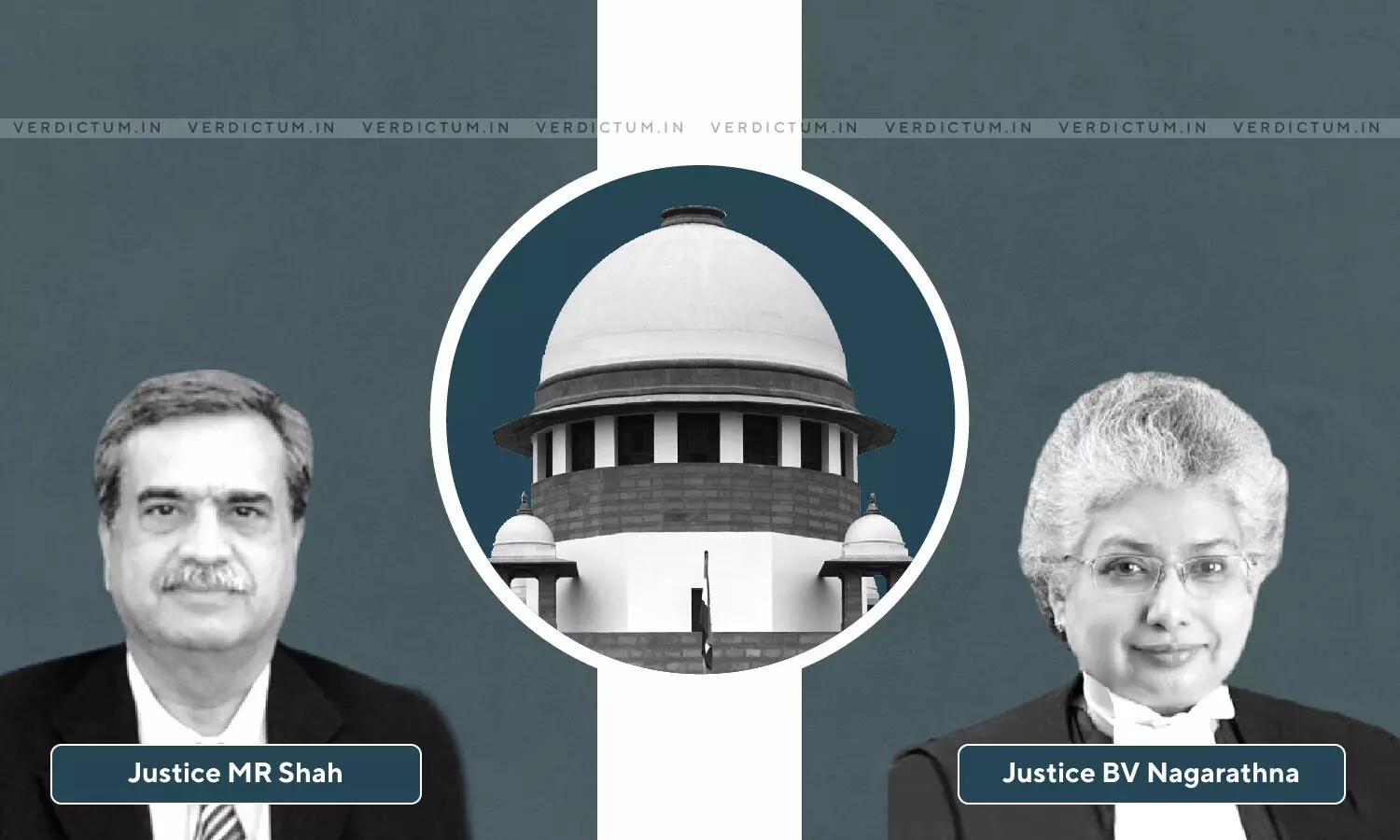
Acquittal In Criminal Trial Has No Bearing Or Relevance On Disciplinary Proceedings: Supreme Court Reiterates
 |
|Setting aside the orders passed by the Industrial Court and the Bombay High Court, a two-judge Bench of the Supreme Court comprising Justice M.R. Shah and Justice B.V. Nagarthna refused to allow reinstatement with back wages of a driver engaged by the MSRTC, after he was dismissed from service following a departmental enquiry for rash and negligent driving.
In 1992, when the respondent-driver was driving a bus, he met with an accident with a jeep coming from the opposite direction. As a result of this, four passengers died and six were seriously injured. The impact was so high that the jeep was pushed back around 25 feet and it was severely damaged. The respondent-driver was subject to departmental enquiry, after which he was dismissed from service. He was also prosecuted for the offence under Section 279 of the IPC, of which he was acquitted because the Prosecution failed to establish the sole responsibility of the driver for rash and negligent driving. It was decided that the case was one of contributory negligence.
The Respondent-driver challenged the dismissal order before the Labour Court, which upheld the order of dismissal.
Thereafter, the Respondent filed a revision application before the Industrial Tribunal, which invoked the power under item No. 1(g) of the Schedule IV of the Maharashtra Recognition of Trade Unions and Prevention of Unfair Labour Practices Act, 1971 and decided that the order of dismissal was disproportionate to the misconduct proved and thus allowed reinstatement. Since the workman did not press for back wages, the same was not awarded.
Pursuant to this, a writ petition was filed in the High Court by the MSRTC against the order of the Industrial Tribunal allowing reinstatement. The High Court not only dismissed the writ petition preferred by the appellant but directed appellant to pay respondent back wages till superannuation.
Ms. Mayuri Raghuvanshi, appearing for the Appellant before the Apex Court contended that the High Court and Industrial Tribunal failed to appreciate the difference between the disciplinary enquiry and criminal proceedings. They should not have relied on the acquittal of the respondent in the criminal case, as both require different standards of proof and operate in different fields, having different objectives, relying on Samar Bahadur Singh Vs. State of U.P. & Ors. and Union of India & Ors. Vs. Sitaram Mishra & Anr.
The Appellant also contended that since the respondent was gainfully employed after his dismissal, reinstatement was not warranted.
Decision:
Ruling in favour of the Appellant, the Apex Court held that the order of the Industrial Court is bad in law as the dismissal in the present case cannot be said to be disproportionate to the misconduct proved.
The driver was acquitted of charges U/s 279 and 304(a) IPC because the prosecution failed to prove that the incident occurred due to rash and negligent driving due to hostility of witnesses, lacuna in the examination of IO, etc. It was a case of contributory negligence, this does not mean that the driver was not negligent at all. Hence, he is not absolved from the misconduct allegation.
The Court noted-
"As per the cardinal principle of law an acquittal in a criminal trial has no bearing or relevance on the disciplinary proceedings as the standard of proof in both the cases are different and the proceedings operate in different fields and with different objectives."
The Industrial Court committed a grave error in interfering with the order of dismissal of the disciplinary authority, which was not interfered with by the Labour Court.
Since the driver was gainfully employed, reinstatement with continuity of service was not warranted.
As such, the Apex Court set aside the judgement of the High Court and Industrial Tribunal and upheld the judgement and award of the Labour Court and restored the same.
Click here to read/download judgement